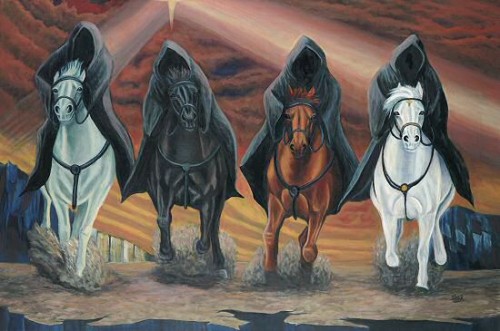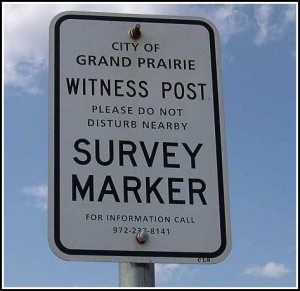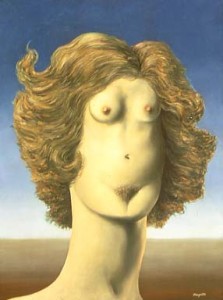THE END IS NIGH!!!!

REMINDER: Way back on Labor Day I announced that The Agriculture Reader (which I co-edit) would be offering discounted copies of Issue #3 until the end of September. And now the end is nigh. The arts annual, published in a limited edition of 600, usually sells for $14 per copy, but is still available for ten bucks for two more days. Please, if you’re still thinking about supporting us, take advantage of our sale-price. We’ll both be glad you did. For more details about the issue, you can click through to our page or to my original post here about the sale.
“It was like living in a vending machine. I watched Ed Sullivan as dad yelled at my sister because of her bad dreams.”
 David Ensminger’s Trailer Park Fragments: A Place Called Whispering Lanes is a new e-book available from Magic Helicopter Press. It has more true lines than a lot of things I’ve ever read, and I’m pretty sure you can live inside of it the same way I’m pretty sure you can fill your backpack with persimmons. Those are the reasons I published it. I hope you might like to read it. There is also a music video opportunity.
David Ensminger’s Trailer Park Fragments: A Place Called Whispering Lanes is a new e-book available from Magic Helicopter Press. It has more true lines than a lot of things I’ve ever read, and I’m pretty sure you can live inside of it the same way I’m pretty sure you can fill your backpack with persimmons. Those are the reasons I published it. I hope you might like to read it. There is also a music video opportunity.
September 28th, 2009 / 1:50 pm
The Puschart Prize nomination collaboration/purchase project is now closed. We have 65 people signed up. If you are still interested, you’re welcome to comment on that post so that I’ve got a backup list of people to contact in case someone else drops out. Thanks to everyone for signing up; instructions to follow in an email from Shya and me.
‘May that godforsaken show burn in hell.’
One of my favorite things about The Onion is how often its content cleverly deals with books, reading, literature, authors, whatever. I think we’ve linked to a bunch of those stories/articles before, so I won’t do that now, but I did want to send you to this recent opinion bit by ‘LeVar Burton’ about his time hosting Reading Rainbow.
Look, Reading Rainbow was a television program. That should tell you something right there. What I should have done is hosted a show that taught children how to watch more television. I bet they would have come up with the funding to renew that show.
What I hadn’t realized is how long Reading Rainbow lasted. According to Wikipedia, “the show ceased airing reruns on PBS on Friday, August 28, 2009.” Damn.
RIP, Reading Rainbow. I have fond memories of tuning in to watch you as I sat on the floor in front of our television and sipped Kool-Aid from my sippy cup.
Open Call for Thoughts about Submitting Work to Online/Print Journals – via Dennis Cooper’s Blog

Sometime last week, Alan, a distinguished local in Dennis Cooper’s The Weaklings blog community asked DC a question about the relative virtues of submitting work to online and/or print publications. DC put the question to the community, but for whatever reason few took the bait, so DC told Alan that it might be a better question for a blog like ours. Of course this was all happening in the daily-epic “p.s.” section of DC’s blog, so I saw it, and offered to make that notion a reality. Here’s the question Alan asked. After the jump you’ll find the answer I posted on DC’s blog. And please do leave your thoughts in the comments section here on this post.
THE QUESTION: Is there a big difference in readership or prestige these days between print publication by a journal and web-only publication (by same journal)? I notice a lot of outlets for submitting my story are asking me to choose which one I’m trying for. I’d love to know what other people here think.
On Brandi Wells’s ‘Instructional’
 HTMLGIANT reader Joseph Goosey asks in a recent email:
HTMLGIANT reader Joseph Goosey asks in a recent email:
Regarding Ms. Brandi Wells’s piece in the latest PANK, could a male have gotten away with composing a similar piece, let alone publishing it in a fine journal?
Anyhow, I asked Roxane Gay, new HTMLGIANT contributor and current Associate Editor of PANK, if she’d like to respond to Goosey’s question before I posted it for others to comment on. Here’s what she sent back via email:
I definitely think a man could have “gotten away” with writing a similar story for a couple reasons. First, we don’t read blind at PANK but our submission manager assigns each file a number and if the writer doesn’t include their name in their .doc file, we have no real way of knowing who they are as we read submissions. I’m far too lazy to open up Firefox and see who wrote what as I’m reading. There was no identifying information in Brandi’s file so Instructional could have been written by anyone. I loved the story and didn’t give a thought to the gender of its author.
If I had seen a man’s name in the file, I would have thought, “eww, perv,” or “this is creepy, I hope he never finds out where I live,” but I still would have loved and chosen the story. The writing is spectacular.
I also think it’s a bit… sexist (or something) to assume that it’s somehow safer or more acceptable for a woman to write a graphic, uncomfortable story. This is not a case where it’s different for girls.
Rotten Apple: There’s No App For That

In December 2008, Peter Cole, editor of Keyhole, thought it would be nice to develop an iPhone app for the magazine to broaden its reach. He hired a developer and they submitted the application to Apple. A few days later, the app was rejected by Apple for violating their standards. The story with which they had objections was Heather Fowler’s Catholic Girl Smile, a rather mild story under any circumstances and particularly when contrasted with many of Keyhole’s offerings. Peter shelved the idea. READ MORE >
When the Establishment is Infinitely more Avant-Garde than the Avant-Garde, is it not time to Reconsider Our Notion of the Avant-Garde?
httpv://www.youtube.com/watch?v=iOsgqG5OOlM&
This might be a good time for us to re-visit Chris Bachelder’s 2004 essay, “A Soldier Upon a Hard Campaign,” which was written about the problems of integrating satire and politics into one’s writing, without continually being upstaged by the world.
I found it poignant that Animal Face-Off was airing just as Bear v. Shark was sliding quietly out of print. It seemed to mean something, but I wasn’t sure what. I suppose I couldn’t figure out if the TV show made the book more or less urgent and necessary. Probably less, I decided. The lag time between absurdist, futuristic satire and American reality was something like two years in this case.
The essay also contains the following maxim about the nature of art which has stuck with me ever since I first read it. I was just thinking about it the other day, in fact. It goes: “Beauty without Conviction is a beer commercial; Conviction without Beauty is a pamphlet.”
So, if this was my Expository Writing class, the essay question would be something like: Using the Norton anti-virus commercial and Bachelder’s discussion of satire as our critical sources, let us work outward toward a more general discussion of the nature of the avant-garde in literature. When randomness, absurdity, and anti-narrative are the standards of the mainstream (and what is advertising if not mainstream desires and values served back to the mainstream in their purest forms?) what does the cutting edge look like? Can the avant-garde seek to invert those values by embracing “classical” values and forms such as linear storytelling in a realist mode, or should we seek to break out of the dialectic entirely? What might that breaking-out look like?
5 pages, double-spaced. Rough draft due Tuesday; final draft due a week from Tuesday. Or whatever’s on your mind right now, left in the comments here. Whichever.
The ghostly cu-cu

Kristin Naca’s first poetry collection Bird Eating Bird, winner of the 2008 National Poetry Series mtvU prize as chosen by Pulitzer Prize winner Yusef Komunyakaa, is now available!
Here is a sample, from part of a part of a poem called “House,” which appears in Octopus 11:
“Suppose there is a bubble that flutters inside you. Or suppose it builds in the plastic air. Or the plastic that is liquid and luminous yet air. Or suppose in reverse the air plastic. And in its sloshing to-and-fro forms teacups of air unsettling its layers. In the teacups is air air not plastic. And teacups are cool and porcelain as anything that’s cool and porcelain.”
